AT FIRST SIGHT, it looks like a crazy choice — to become a digital nomad in Iran. Even Iranians seem to feel pretty surprised and confused when meeting such a person. But did you know that the co-founder and CTO of Dropbox is of Iranian descent, as well as the CEO of Expedia, former CEO of YouTube and many other successful professionals in the tech industry? All in all, entrepreneurship has been a part of the Iranian DNA since ancient times, all through the era of the formidable Achaemenid Empire, during the reign of the powerful Safavid dynasty, until today.
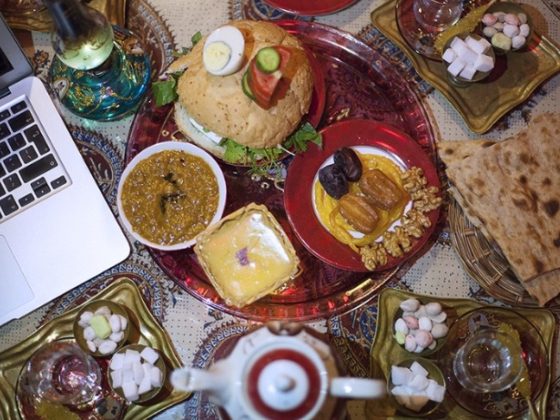

The Ultimate Digital Nomad Guide to Iran
After this short introduction about the Iranian diaspora and the rich past of Persia, let’s talk about the present and first of all quickly clarify one major stereotype before moving further. Since you’re a traveler, or getting ready to become one, I assume that you are already aware that Iranian people are not fanatics, burning flags in their leisure time, or hanging people in the streets instead of putting up the traditional carved pumpkins for Halloween. They are just like you and me — hoping to get the best education or a good job, dreaming of travel, using social media, watching similar movies, listening to similar music, reading similar books. On the whole, they share our dreams.
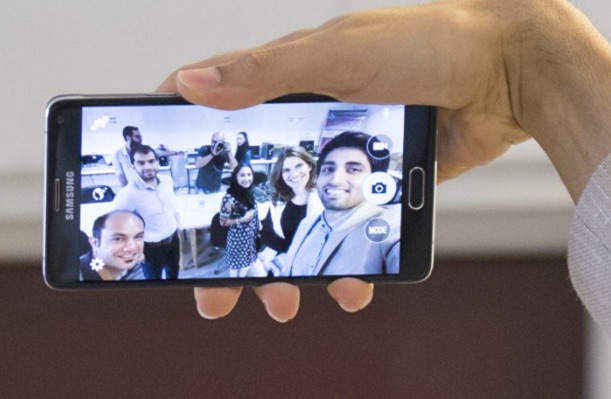
Photo: entrepreneurs.maqtoob.com
IRAN
The startup scene in Iran, especially in Tehran, is booming. Even though the country is struggling under the weight of international sanctions, entrepreneurs enjoy the market of over 80 million inhabitants and very little external competition. Iranian entrepreneurs are not expecting any major help from their government; they get the real meaning of entrepreneurship and stick to it vigorously.
If I look at the 80+ countries I’ve visited so far, at the moment, Iran is the ideal place to be an entrepreneur, given the successful negotiations on lifting the harmful sanctions.
As is the case with any emerging market, it may at first be hard for you to adapt to the local lifestyle and business environment, but it’s still way easier than we usually imagine.
How to stay as long as possible on your tourist visa
To everyone’s surprise, most of the countries can get a visa on arrival at the international airports of Iran, assumed they have a return ticket on hand — except for the USA, the UK and Canada (they need to get a visa beforehand at an Iranian embassy). The only flip side is the length of such a visa: only 14 days.
You can still prolong your stay at the corresponding police station, but only for another 14 days. The best way to get permission for a long stay would be to apply for a “tourist visa” beforehand at the Iranian embassy in your country.
A flight to Dubai (UAE) may possibly be the cheapest way to renew your tourist visa.
Which city to choose in Iran
Iran is a really huge country with many big cities spread throughout all of its four corners. It is ranked as the 18th biggest country in the world in terms of area and the 17th in terms of population (around 80 million citizens).
The choice of your stay will depend on your personal preferences, i.e. if you’d like to stay by the sea in a quiet and modern atmosphere (Kish Island), in a business city (Tehran), in a small village (Zanjan), in a place full of history (Isfahan, Shiraz, Yazd), or in a holy city (Mashad).
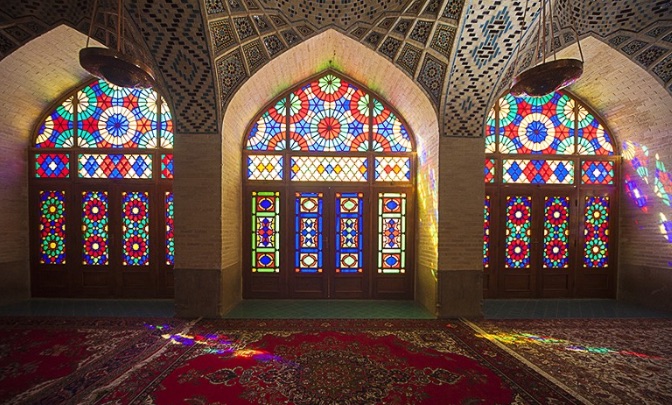
Photo: entrepreneurs.maqtoob.com
Where to look for good WiFi connection
First: VPN! If you have never heard of this acronym before, believe me that it will become your everyday routine. There are many banned websites in Iran, such as YouTube, Twitter, Facebook, Tumblr, Medium, etc., and VPN (Virtual Private Network) can virtually make it look as if you were logging in from another part of the world, thus circumventing the bans.
My tip is to install VPN apps (both on your laptop and smartphone/tablet) before getting to Iran, because sometimes you won’t be able to download them once you’re already there. Download as many different ones as you can, because they may stop working without notice.
I don’t know which VPN the Supreme Leader (@khamenei_ir) or the President of Iran (@HassanRouhani) use, but we’ve used HotspotShield for Mac and Betternet or SurfEasy VPN apps for iPhone.
As for the connection, almost all Internet cafes offer WiFi with acceptable bandwidth for an affordable price. In some hotels, Internet is still rationed (you may get around 100Mb per day). On the other hand, the 3G connection has amazingly improved over the last years. It’s reliable and way cheaper than in Europe. They even offer 4G!
My tip is to unlock your smartphone and buy a SIM-card with data.
Where to get the best SIM-card with mobile data
Mobile data is reasonably cheap in Iran (Iran Telecom and Iran Cell). Count around $5 for 3GB (1 month). 3G Internet speed in Iran is far better than what you’ll have when connected to WiFi in a café.
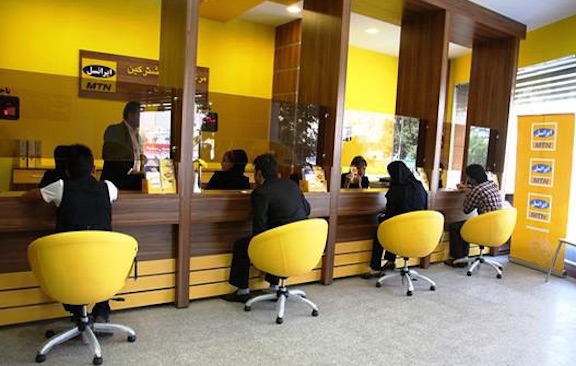
Photo: entrepreneurs.maqtoob.com
You can buy a SIM-card easily in many shops around the city. The main problem about a SIM-card with data in Iran is that it may take up to 1 week to get it. We managed to get it the same day we asked for it, thanks to one of our Iranian friends who got us the Holy Grail within 30 minutes using his own ID.
Where to find people to join your team
There are almost no co-working spaces in Tehran, but the tech community is quite small so you’ll end up meeting everyone in a couple of days.
Otherwise, you can check Ponisha.ir to find people who look for new job opportunities.
What are the best and cheapest places to stay in Iran
First of all, you’ll need to book a hotel before landing in Iran (sometimes they ask you for a reservation confirmation at the immigration counter, sometimes just for the hotel’s address). Since Iran is still under the economical sanctions, international booking websites won’t work for Iran. You’ll find most of the hotels featured in TripAdvisor but you won’t be able to book them. Just send them an email and they’ll come back to you with a voucher.
Once there, the best way to find cheap accommodation is Couchsurfing. The CS communities in Tehran and in other big cities are very active. You can find a couch for a couple of days, then they can help you find a long-term place to stay for a better price than a hotel.
Bear in mind that by law you are not allowed to stay at anyone’s place, but in reality you won’t come across any problems. So just don’t go shouting about it, mainly for the sake of your hosts.
How to move around
Public transport is good enough in most of the cities. The metro in Tehran can be really crazy during the rush hours, though. Female travelers board special female wagons, or they can stay in the male wagons with their husbands. Taxis are not cheap enough for everyday use. There are no meters in taxis, so you’d better bargain the price before getting in. I even used the Iranian version of Uber called Snapp (in Tehran).
There are good bus connections all around the country, some of them, called “VIP,” have only 3 seats per row and a large space for your legs.
We haven’t tried the train, but apparently the one going to Mashad offers the best comfort and is also the fastest.
Domestic flights are a great alternative to buses (around $40-$50 for 1 way) to get to furthest destinations, such as Shiraz or Kish Island.
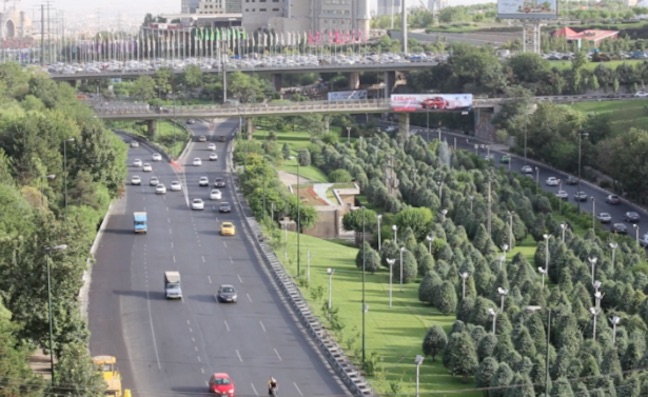
Photo: entrepreneurs.maqtoob.com
How about shopping
You can buy vegetables, fruits, meat, milk, bread etc. from grocery shops all around the city. In general, fruits & vegetables produced in Iran are dirt cheap, whereas imported foods would cost you more. Most of the Iranian dishes and street food contain meat, so if you’re a vegetarian, the best way is to cook for yourself using the inexpensive vegetables.
Of course, you won’t be able to buy alcoholic drinks, but some local guys make their own alcohol at home or they get it through the Armenian or Iraqi border. Christians and Jews are allowed to make their own wine but they are prohibited to sell it to Muslims.
When it comes to international brands, you can spot brands like Nike, Zara, or Levi’s (mostly in Tehran) but they’re only (good) copies brought from Turkey.
What about co-working spaces
At the moment, there are very few real co-working spaces in Iran. The first one is launching soon in Zanjan: Hamkarestan 404. Otherwise, you can try to negotiate an office space at one of the three startup incubators in Tehran: Avatech, DMOND or MAPS. Anyway, things are moving and many other facilities are in development. Definitely get in touch with the guys of Iran Startups (Tehran) or Startup Grind Shiraz (Shiraz). They will help you get in touch with the community.
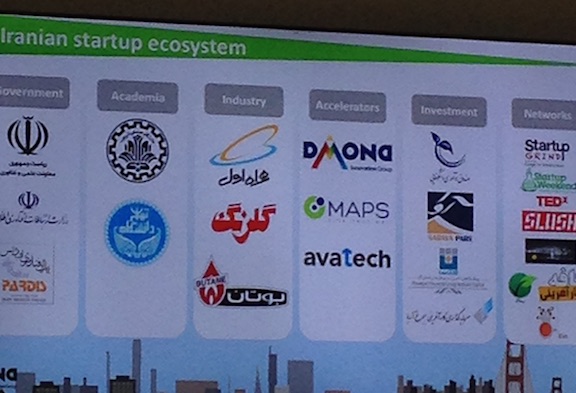
Photo: entrepreneurs.maqtoob.com
How to stay safe in Iran and which places to avoid
Overall, Iran is a safe country. It’s not allowed for people to possess or carry weapons, and police (uniformed and plain clothes) keep an eye on all the neighborhoods. But still, just as everywhere, you should watch your bags in working-class suburbs of the big cities (especially Tehran), and not walk alone in the dark.
Iranian customs to be aware of
Under the influence of Western media, Iran may look super conservative, religious and stuck in the past. The reality is as different as the colors of the rainbow. However, there are a few traditions you should observe:
Taarof: This is an essential concept to understand in Iran. You’ll meet locals offering you a ride, to pay for you in a restaurant, to host you, to show you around, etc. At times, it may be a real offer, but often it is a Persian form of civility. You’ll have to decline many times before you’re sure that it is not a polite offer. Read more about it here.
Religion: The major religion in Iran is Shia Islam. Other official religions are Sunni Islam, Christianity, Judaism and Zoroastrianism. Having said that, I met more people who defined themselves as non-believers than in any other Muslim country, even though they obviously keep it to themselves. When it comes to religion in Iran, discretion is the key. Use commonsense when discussing religion. If you are a Christian or a Jew, you can openly share it in public. Iranian Jews have been living there for thousands of years. Many of them left Iran after the Islamic revolution in 1979, but some of them decided to stay in their ancestors’ land. They even have a seat in the Iranian parliament. Read more about Iranian Jews here.
Behavior in public space: Avoid kissing your partner. Holding hands is okay in the modern areas of Tehran or in Kish Island. Consuming alcohol is of course prohibited, as well as eating during the month of Ramadan (you can still eat at your hotel or in the long-distance buses).
Dress code: The following refers only to public space, of course:
Men:
Shorts are not acceptable in public places. T-shirts are acceptable. Western-style business attire (suit) is common.
Women:
Wearing hijab and following the local rules in terms of female dress code is necessary. However, these rules are not that strict, especially if you’re a foreigner. For example, if you forget to put on a scarf, the maximum that can happen is that you will be politely asked to cover your hair.
Even though your hair should be covered, it does not mean that a scarf should be wrapped tightly around your head. It is very normal and acceptable for women to allow locks of hair to frame their faces.
Contrary to popular belief, black clothes are not required. Many women wear the brightest hues you can imagine.
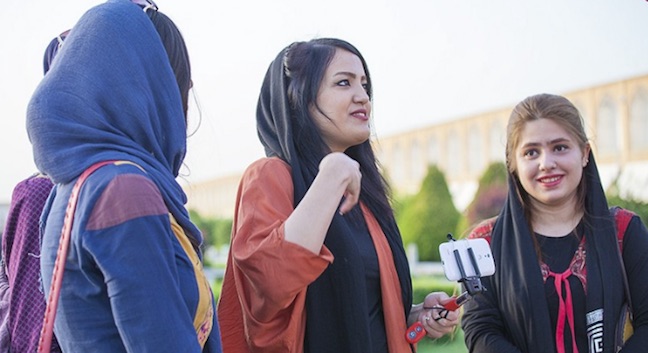
Photo: entrepreneurs.maqtoob.com
Body should be covered with loose tops (shirt, coat, tunic etc. — depending on the weather). Arms should not be bare, but ¾ sleeves are okay.
Legs should be covered down to ankles but feet can be bare. Yes, you can wear open shoes, sandals, or flip-flops. And leggings, tight trousers or skinny jeans are quite common.
When visiting certain sights (some mosques), chador may be needed temporarily, but they will lend it to you at the entrance.
Where to go to relax
There are many places where you can spend your free time. If you are in Tehran, you may want to hike the mountains of Tochal (don’t forget to visit the village of Darband). You can also ski or snowboard in Dizin or Shemshak. If you prefer to relax by the beach, Kish Island is the place to go, even though couples cannot swim together.
History lovers will want to visit Isfahan, Shiraz and Yazd. If you are curious about the Shia branch of Islam, visit Qom or Mashad, where one of the holiest saints is buried.
If you are a cinema lover, we found one cinema that screens Iranian movies with English subtitles: Cinema Museum (in the afternoon).
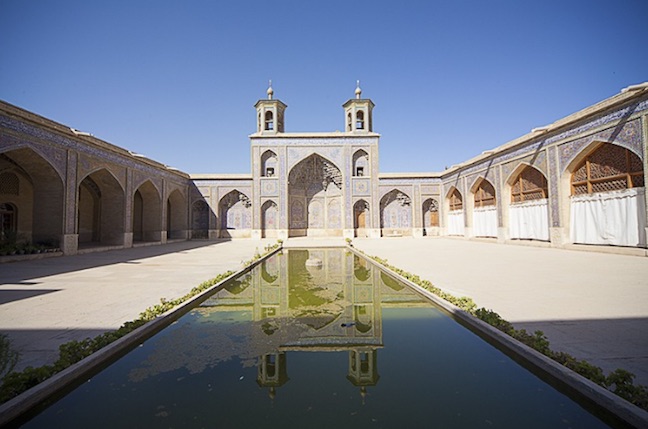
Photo: entrepreneurs.maqtoob.com
Which bars and clubs to visit for Iran’s nightlife
Officially, clubs are prohibited in Iran. All the parties are held behind closed doors in private. Iran is the 3rd biggest alcohol consumer in the Middle East after Lebanon and Turkey (*), so there is a lot of fun going on behind those doors.
What to do in case of an emergency (like finding English-speaking hospitals)
In the big cities, most of the doctors speak English. We personally experienced a short visit to a local hospital in Kish Island. It was really well-equipped, the doctor spoke to us in great English and the invoice was cheaper than the taxi to get us there.